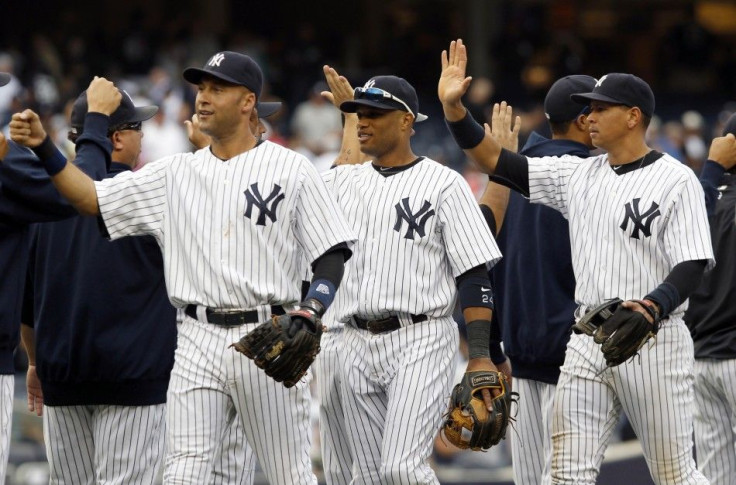Post-'Moneyball,' Does A Large Payroll Guarantee Success In Baseball?
Money matters, especially over the long term

The 2011 Academy Award-nominated film Moneyball detailed how the general manager of the low-budget Oakland Athletics used advanced analytics to compensate for a small payroll and beat some of the most well-heeled, highly ranked clubs.
The Athletics general manager, Billy Beane, built a roster around players who, though poorly rated and thus less expensive, excelled at specific tasks, like base stealing or slugging percentage. His low-budget approach allowed the Atheltics to compete with wealthy, major market teams like the New York Yankees and the Boston Red Sox and even make the playoffs for four straight seasons in the early 2000s.
However, the A's haven't made the playoffs since 2006 and that raises the question: Is it still possible to succeed on a small budget or is it necessary to have a large payroll to win in Major League Baseball (MLB)?
Harris Private Bank decided to take a stab at an answer by looking at the payrolls of each MLB team this season and comparing them with each team's record in the first half. The findings suggest that money plays a large -- though not decisive -- role in success.
In the American League (AL), the Yankees have both the best win-loss record and the highest payroll. The Yankees have a lot of money dedicated to their stars like Alex Rodriguez and Mark Teixeira, but also have done a nice job of getting quality production from reserves Raul Ibanez, Eric Chavez and Andruw Jones. Harris' analysis, which ranks teams by actual performance versus expectations, has the Yankees performing 41 percentage points above expectations, good for third best in the Harris ranking of AL teams.
The Yankees' archrival Boston Red Sox, with the third-highest payroll in baseball, is 50 percentage points worse than expectations in the Harris rankings. The Red Sox' 2012 payroll is a whopping $173 million, yet it sits at .500 and was 9.5 games back in the AL East at the All-Star break.
The Red Sox have had a rough first half of 2012, but they aren't the American League's worst, according to Harris. That title goes to the Seattle Mariners with a payroll of $81.9 million and a 36-51 record.
In the National League (NL), the Philadelphia Phillies possess the largest payroll, but also sit in last place in their division and are considered one of this year's biggest disappointments. The Phillies are performing 86 percentage points below expectations, the worst in the NL, according to Harris' data.
Their divisional rival, the Washington Nationals, are the best team in the National League, performing 113 percentage points above expectations, according to Harris, as the team has an impressive 49-34 record on a modest $81 million payroll.
Another impressive team in the National League is Pittsburgh. The Pirates haven't made the playoffs in 19 years, but finally look poised to break through and end the streak in 2012. Despite a comparatively miniscule $63 million payroll, the Pirates own the best record in the NL Central and are performing far beyond Harris' expectations.
So how important is money?
The short answer is that in the short run big money is not necessary to success. Exhibit A is Pittsburgh. But over time it is clear from the Harris analysis that money still plays a major part in success in Major League Baseball.
The American League is dominated by teams with large payrolls -- the Yankees, Chicago White Sox and Texas Rangers are all in the upper-half of payrolls and lead their divisions -- and has been for the last decade. The National League has seen a resurgence this year in smaller market teams, but still has big market teams like the New York Mets, St. Louis Cardinals and San Francisco Giants in contention for playoff spots.
The Phillies and Red Sox show that poorly spent money can lead to disaster, but a large payroll typically allows organizations to overcome a bad acquisition or two. Teams can make periodic runs through a strong farm system and smart decision-making, but a willingness to spend big bucks is what often keeps teams in contention for long periods.
© Copyright IBTimes 2024. All rights reserved.




















